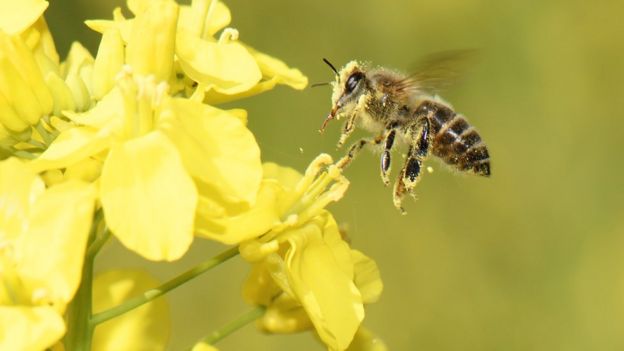
This article is more than
7 year old
Scientific studies have long linked their use to the decline of honeybees, wild bees and other pollinators.
The move represents a major extension of existing restrictions, in place since 2013.
Manufacturers and some farming groups have opposed the move, saying the science remains uncertain.
Neonicotinoids are the most widely used class of insecticides in the world, but concerns about their impact on bees have been reinforced by multiple research efforts, including so-called "real world" trial results published last year.
Back in 2013 the European Union opted for a partial ban on the use of the three chemicals in this class: Imidacloprid, clothianidin and thiamethoxam.
The restrictions applied to crops including maize, wheat, barley, oats and oil seed rape. The newly agreed Commission regulation goes much further, meaning that almost all outdoor uses of the chemicals would be banned.
Voting on the proposal had been postponed a number of times as countries were split on the move. However, Friday's meeting saw a qualified majority vote in favour of the ban.

The action has been driven by a recent report from the European Food Safety Authority (Efsa), which found that neonicotinoids posed a threat to many species of bees, no matter where or how they are used in the outdoor environment.
"The Commission had proposed these measures months ago, on the basis of the scientific advice from the European Food Safety Authority," said EU Commissioner for Health and Food Safety, Vytenis Andriukaitis
Read More (...)